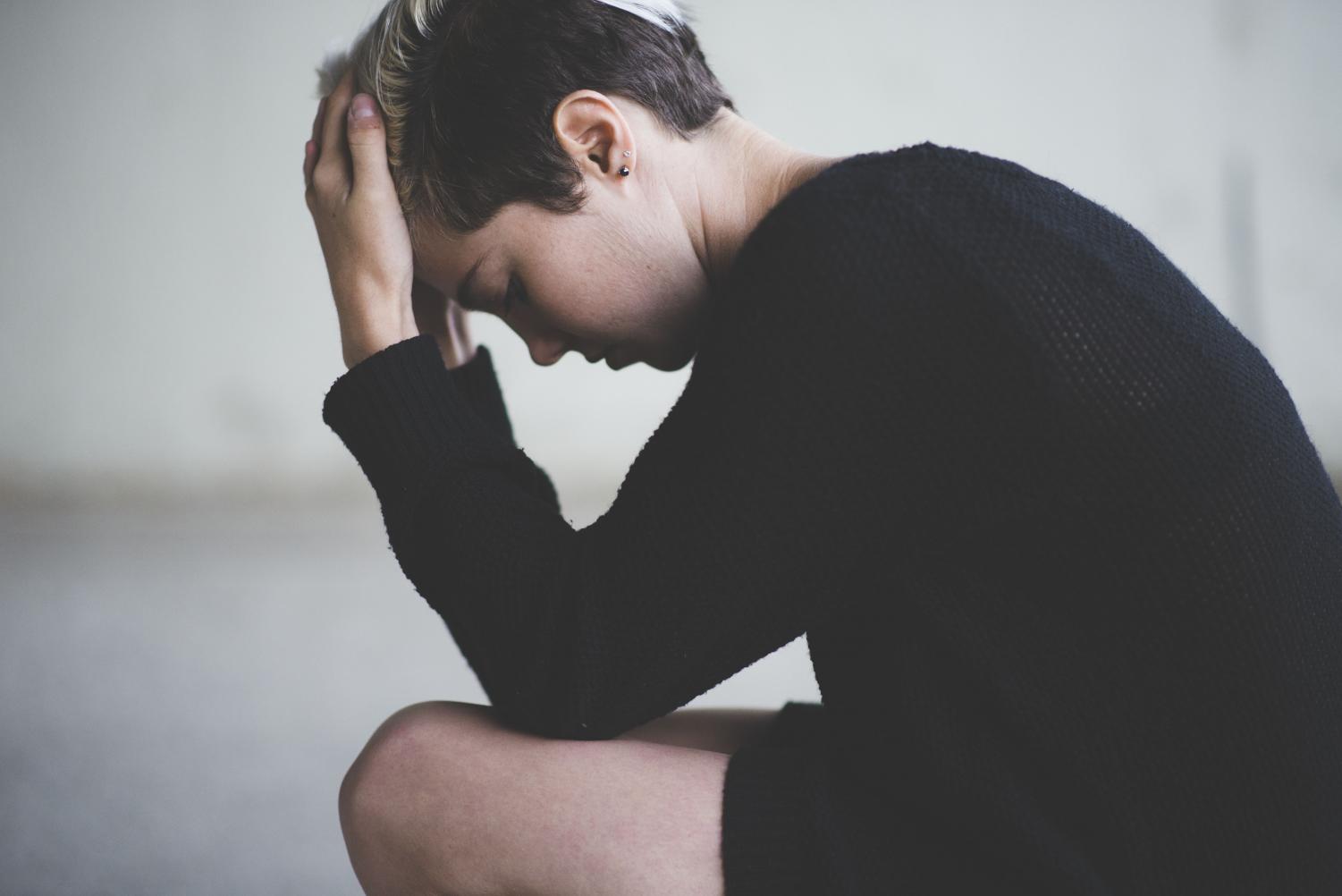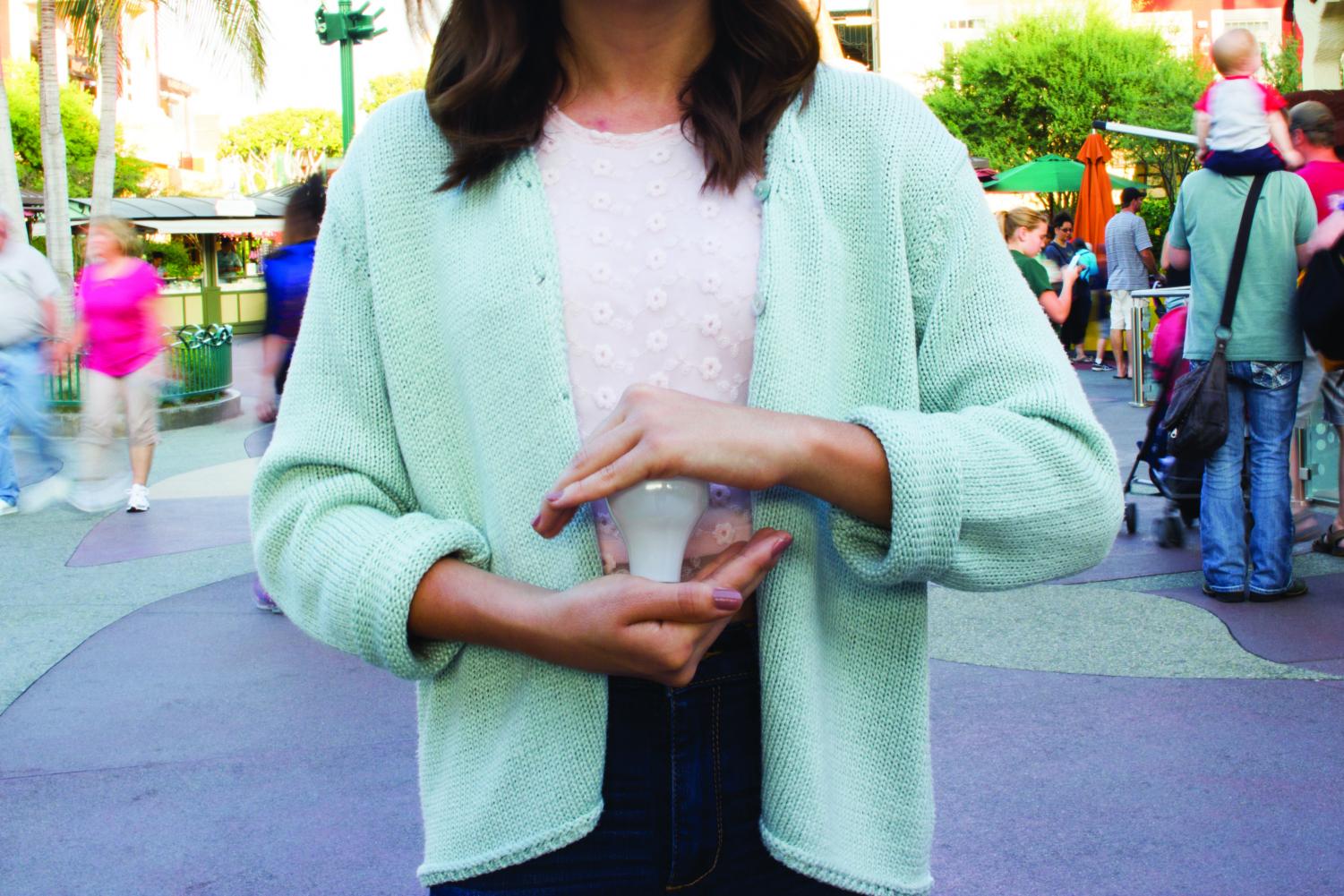Written by Morgan Mitchell
“Like That” Being a freshman can be stressful. Well, stressful is an understatement: new classes, new home, new friends, new town and new weather. For many, the first few weeks are a hectic, chaotic blur that gets forgotten and tucked away as you adjust.
For me, not so much. I had difficulty adjusting to two things in particular: the heat — San Diegans never get weather above 90 degrees — and the dress code. One day, I got up and checked the weather report. 100 degrees! I groaned and dug through my closet for the outfit that would keep me away from heat stroke the most. A black and white crop top shirt with high-waisted black shorts. I rushed off to class without giving my outfit another thought.
Fast-forward to that night when I’m sitting in my room doing homework. I hear a knock on the door. It’s my RA.
She was pink in the cheeks and played with her hair nervously, refusing to make eye contact with me. “Can I help you?” I asked, starting to feel worried that this visit wasn’t just a friendly check up. She proceeded to tell me in the most gracious way possible that she wasn’t going to assume that I’m “like that” in any way, but I needed to protect my brothers and not wear a crop top anymore. I was instantly humiliated. Of course I wasn’t “like that.” I just wanted to survive the day. Who else thought that way about me? Were boys really stumbling over one inch of my stomach while I minded my own business?
Then I thought back to Nation Ball. Many of the boys had worn nothing but tiny shorts. Everything else was exposed and certainly stumble-worthy. My heart broke. Why was I ashamed for showing so little? It might not seem like a big deal, but suddenly I viewed my body in a completely different way. I was no longer God’s beautiful creation—now I was a sexual object and felt the burden of others’ sexual sin being placed on my shoulders. I felt like Biola saw me as less valuable than their male students. I had to make sure they didn’t stumble, but no one was telling them to make sure I didn’t stumble or to not view me as a sexual object.
After my RA left, I walked over to my closet and opened it. Unfortunately, I don’t own large, loose-fitting turtlenecks and parachute pants, so the stress of being as modest as possible started to weigh on me.
The Modesty Standard I wanted to be wrong and perhaps I was, so a year later I asked the Associate Dean of Residence Life, Beth Tabor, why there was still a dress code and what the benefits of having one were. “The dress code is a modesty standard and a community standard,” said Tabor. “So in the ideal frame, everyone is aware of the standard and brings it to each other’s attention.”
Tabor said the benefit of having a dress code is the idea of taking responsibility for ourselves and how we impact people. “It’s helpful in respecting other people and thinking outside of yourself and that’s how all the community standards are. It’s not about you, it’s about us as a community and how we impact each other.”
She also explained why the dress code is one of the trickiest community standards to enforce: “It really should only be handled between people with relationships with each other. The modesty standard gets barely touched on because it is extremely personal. It is someone’s expression, someone’s style. The amount of embarrassment and shame you feel when being confronted is so big.”
When I told Tabor what my RA said, she wasn’t surprised. “People aren’t going about enforcing [the dress code] in a good way from what I’ve heard. They just make judgments.” She described the dress code as never being black and white. An article of clothing could be scandalous on one girl, but not on another. “That’s why we don’t enforce it very much, because it’s so particular.” Tabor shared that she believes Biola will get rid of the dress code one day. “Right now it feels like a really hard policy to enforce. I’d rather it be like, ‘Let’s make choices that honor each other and when we don’t, hopefully the community corrects us,’ but maybe not have spaghetti straps be that line.”
Tabor admits to seeing a negative side to the dress code. “As a woman, going off campus feels different than being on campus and how people look at you. Anything that smells of sexuality, there is a certain fear of it. There are good things to be prudent and stay away from and there are things Biola is just too scared of.”
Tabor shared a personal time she felt the sexualization from the dress code when she attended Biola. She felt the culture shock of coming to Biola from a public school and suddenly having to worry about her shorts. “I wasn’t out to get attention at all, but all of the sudden I was aware of that,” she recalled.
Then there was the big question. I asked Beth if she honestly saw a double standard against women in the way the dress code is enforced. She replied, “You can say there is a double standard, but in truth, it’s not a major issue with how men are dressing. No one notices how guys dress, but people notice how girls dress often. It’s so rare to be offended or drawn to guys. You can definitely say there is a double standard in how it’s enforced, but there is a reality in what turns heads.”
She then went back to comparing it to off-campus culture. “In society, women will always be more objectified than men and it’s historical; women have always been more looked at.”
Even if this were true, is it something that we just accept? Women are doomed to be looked at more and judged more, so let’s try to live with it?
Equal Burdens I asked John Vogel, a senior philosophy major and the resident advisor for 3rd North Horton, if he tells his boys about the dress code like all my RAs did at my floor meetings. I also asked him for a male student perspective on the dress code.
“As males there is less of an emphasis for us to address these issues as males are less likely to break the few dress code rules there are for us,” Vogel answered in an email. “The dress code does apply more to females, so female RAs are more likely to address it.”
This statement made me worried about how the rest of this conversation would go, but when I asked Vogel if he noticed a double standard, his reply pleasantly surprised me.
“I think men have been given a pass,” Vogel acknowledged, alluding to men donning tank tops and short shorts. “Because we do live in a society that is just now understanding that women also struggle with lust just as men do, we will see a change in our culture’s view on dress codes. As the body of Christ, we must be willing to protect one another; but this has been a one way street in the church.”
Vogel said men and women should step up and bear equal burdens, then offered what men can do to fix the current imbalance.
“We must be willing to see women not as objects to be obtained, but as sisters who are to be loved. We must be willing to admit that we have damaged the female identity and turned the female body into something that be feared. We need to come alongside our sisters and admit our faults and take responsibility for our eyes and hold ourselves to the same standard we expect women to hold.”
I could not have said it better myself. But I don’t want men to suddenly feel guilty for not doing their part; I want men to feel angry because society doesn’t think they can.
The Root of the Shame I talked to Sarah Schwartz, administrative coordinator of communication studies and current Talbot student, who is known for her talk on sexuality and purity at Afterdark. “Society puts us into little categories: Men are sexual and women are emotional. There is no crossing over of the two, when in reality everyone is human and different and needs to be attentive to both. God created us to be so much more.”
Schwartz told me why men should be upset at this. “We are told men are animals, they lack empathy, and have no self control so we have to cover up for them and protect them. It’s completely degrading to men. Both genders have eyes, both genders experience lust; I would love to see the science behind the statement that men are more sexual.”
Lighting up with passion, Schwartz explained, “This makes women feel ashamed for feeling lust and they never communicate it because they think they aren’t supposed to. Which is exactly how guys feel when they have emotional needs.”
When I brought up the line that we have all heard—“protect your brothers”—Schwartz rolled her eyes.
“The Bible doesn’t say women are the gatekeepers to sexuality. That rule of protecting your brothers and not being a stumbling block creates a culture of shame,” she said. “All the passages about modesty in the New Testament aren’t about what to wear or sexuality at all, they are about flaunting your wealth, but people interpret it in completely wrong ways.”
Schwartz is referring to Isaiah 3:16-23, 1 Timothy 2:9-12 and 1 Peter 3:3. She explained that Old and New Testament writers were concerned about the people of God flaunting their wealth by wearing expensive clothes and jewelry while many of their neighbors suffered in poverty, so they told them to be more modest. But people today think they are referring to a sexual kind of modesty.
I asked Schwartz what we should do instead of having a dress code.
“We need to have conversations about how to honor and respect the image of God in each person and help students prepare to honor God in relationships after leaving Biola. A dress code is like putting a Band-Aid on a problem that requires heart surgery.”
As A Community After talking to all these amazing people, I came to the realization that the dress code itself isn’t the main problem. Sure, it can be problematic, but the real problem is how it is enforced and who we are focusing the enforcement on.
Biola needs to remember that as a community we all struggle with the same problems, men and women. We can help each other, but we also need to take responsibility for what is going on in our own hearts. Biola needs to have more discussions on this topic and not let their fear set their students up for failure outside the bubble by sheltering them now.
I believe Biola can do this, and I believe we can make this campus a loving community with no shame, no blaming and, maybe one day, no dress code.





